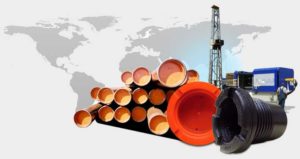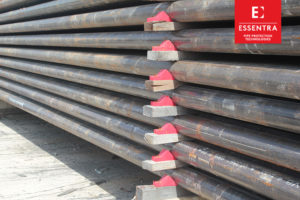Drill protectors are hardened devices usually installed around drill pipe ends to prevent steel-to-steel pipe contact, thereby reducing wear and tear. These protectors come in handy when transporting or installing steel piping. With this in mind, they are widely used in the gas drilling, oil drilling, water drilling, and construction industries.
Features of Drill Protectors
In most cases, drill protectors are made of hardened plastics or heavy-duty rubber materials. You may also come across protectors made of steel-reinforced rubber. In addition, they are made to withstand temperatures of more than 150°C regularly encountered when lowering and installing pipes deep underground for drilling operations. They also come in different sizes ranging from 2-3/8″ to 7-5/8″, although sizes vary from one manufacturer to the next. Nevertheless, it is possible to order custom drill protectors if you cannot find protectors that can wrap around the threaded ends of custom-made pipes.
It is also worth noting that such protectors must comply with industry standards such as 2007 ISO 13624/API RP 16Q. In general, it is advisable to purchase protectors that are ISO/API compliant and are available in various configurations. In fact, you should make sure that any protector you are eyeing complies with all API spec 7 requirements.
Applications of Drill Protectors
The main aim of installing drill protectors is to prevent point-to-point contact and environmental corrosion that could damage drill pipe products while in transit, storage, or during installation. These protectors are widely used in the energy production industry. For instance, some drill pipe protectors are designed to reduce torque and drag in drill strings, especially during pipe movement when the frictional load between surfaces tends to be high. Ultimately, having them will drastically cut down on time, as well as cut down, if not eliminate, the expenses incurred from damaged pipes and major accidents.
Conclusion
Drill protectors are specialized devices designed to reduce wear, tear, corrosion, and damage to drill pipes during installation or movement from one point to another. When buying any of these products, make sure they comply with API specifications and ISO standards.




